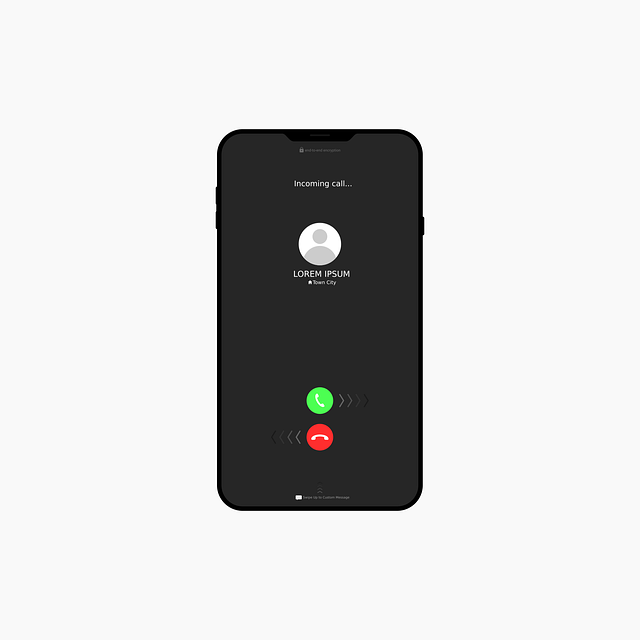In Iowa, residents face persistent spam calls from telemarketers and automated systems on phones, cellphones, and smartphones. While some consider them harmless, others find them invasive. Despite legal protections against excessive telemarketing, spammers employ evolving methods. Iowans can defend themselves by blocking numbers, registering for the Do Not Call list, and seeking advice from specialized lawyers. Communities collaborate through workshops led by local lawyers to empower residents to combat spam calls on landlines and smartphones, integral to daily life in Iowa. Legal aid organizations guide citizens through consumer protection laws and regulations surrounding telemarketing practices, offering tailored advice and legal action against persistent spammers.
In today’s digital age, the nuisance of spam calls has become a pressing issue for communities across Iowa. With an increase in telemarketing practices, unwanted phone calls to both landlines and smartphones are on the rise, disrupting daily life and leaving residents concerned. This article delves into the growing concern of spam calls, exploring their impact and offering practical solutions. We examine legal protections for consumers, provide tips on identifying and blocking these calls, and highlight community efforts to combat this modern-day challenge. Additionally, we guide Iowans on seeking assistance from local lawyers specializing in telemarketing laws.
Understanding Spam Calls: A Growing Concern in Iowa
In today’s digital era, Iowa residents, much like folks across the nation, face a persistent challenge from spam calls on their phones, cellphones, and smartphones. These unwanted phone calls, often from telemarketers or automated systems, have become a growing concern for many Iowans. While some may consider them harmless nuisance calls, others find them invasive, especially when they involve repeated attempts to sell products or services, or even worse, phishing scams targeting personal information.
The rise of spam calls is not only an annoyance but also poses significant legal and safety issues. In Iowa, as in many states, there are laws protecting consumers from excessive telemarketing practices. A lawyer specializing in consumer protection can advise on rights and remedies available to Iowans who feel their privacy is being invaded by relentless spam calls. As the methods of spammers evolve, so must the vigilance of individuals and communities to safeguard against these deceptive tactics.
The Role of Telemarketers and Legal Protections
In the digital age, the phone has become an indispensable tool for communication, with smartphones offering constant connectivity. However, this convenience comes with a downside—spam calls. Telemarketers, while legal in Iowa, often exploit the accessibility of mobile phones to bombard residents with unwanted advertisements. These intrusive calls not only disrupt daily life but also pose challenges for consumers who must navigate a complex web of legal protections.
Iowa laws provide certain safeguards against excessive telemarketing activities, empowering individuals to take action if their rights are violated. A lawyer specializing in consumer protection can guide Iowans on how to deal with spam calls, offering advice on blocking numbers, registering on the Do Not Call list, and pursuing legal remedies when necessary. Understanding these protections is crucial for ensuring that the convenience of a smartphone doesn’t turn into a constant battle against unwanted phone marketing.
How to Identify and Block Unwanted Phone Calls
Identifying and blocking unwanted phone calls, particularly from telemarketers, is a crucial step in protecting your peace of mind and privacy. In today’s digital era, both landlines and cellphones are vulnerable to spam calls, which can be frustrating and even dangerous. One of the first lines of defense is to recognize the signs of a potential telemarketer call. These calls often originate from unknown or out-of-state numbers, and the caller may use automated systems to make mass calls. If you receive such a call, listen carefully; legitimate businesses usually leave a message or provide clear contact information during their initial outreach.
To block these unwanted phone calls, smartphone users can take advantage of built-in call blocking features. Many modern devices have settings that allow you to blacklist specific numbers or even types of calls. You can also install dedicated apps from the Google Play Store or Apple App Store, designed to identify and block spam calls. These apps use community-driven data to recognize and filter out known telemarketers. Additionally, consulting with an Iowa lawyer specializing in consumer rights can provide further guidance on legal protections against such intrusive phone calls.
Community Efforts: Collaborating Against Spam Calls
In the battle against spam calls, Iowa communities are finding strength in numbers. Residents, businesses, and even local lawyers are joining forces to combat the relentless telemarketers. By educating their peers about the risks and frustrations associated with unsolicited phone calls, these collaborative efforts aim to reduce the impact on both landlines and cellphones, especially smartphones, which have become an integral part of daily life in Iowa.
Community initiatives often involve sharing strategies to block and report spam callers. Workshops and seminars are organized to teach participants how to identify suspicious numbers and what legal rights they hold against telemarketers. With the help of local lawyers, these sessions ensure that Iowans understand their options, including seeking legal recourse if necessary. Such proactive measures not only empower individuals but also create a robust defense against spam calls across the state.
Resources for Iowans: Seeking Help from Legal Experts
Iowans dealing with persistent spam calls on their phones, whether it’s from telemarketers or unknown numbers, have several resources available to help them combat this growing issue. Legal experts in Iowa are a significant source of assistance. These professionals can guide citizens on how to navigate the legal aspects of blocking and reporting unwanted calls, ensuring their rights as consumers are protected.
Many law firms and legal aid organizations offer advice tailored to the state’s laws and regulations regarding telemarketing practices. They provide insights into the Do Not Call Registry, consumer protection laws, and the legal steps one can take against aggressive or persistent spammers. With a simple consultation, Iowans can gain a better understanding of their rights and the actions they can take, even on their smartphones, to stop these nuisance calls.


